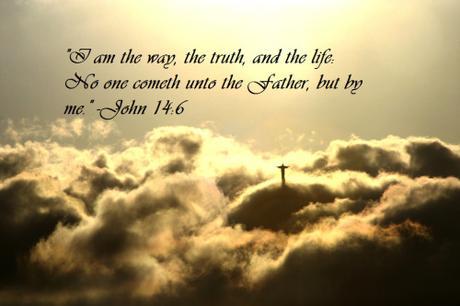Luke 4:21-30
Jesus began speaking in the synagogue, saying:
“Today this Scripture passage is fulfilled in your hearing.”
And all spoke highly of him
and were amazed at the gracious words that came from his mouth.
They also asked, “Isn’t this the son of Joseph?”
He said to them, “Surely you will quote me this proverb,
‘Physician, cure yourself,’ and say,
‘Do here in your native place
the things that we heard were done in Capernaum.’”
And he said, “Amen, I say to you,
no prophet is accepted in his own native place.
Indeed, I tell you,
there were many widows in Israel in the days of Elijah
when the sky was closed for three and a half years
and a severe famine spread over the entire land.
It was to none of these that Elijah was sent,
but only to a widow in Zarephath in the land of Sidon.
Again, there were many lepers in Israel
during the time of Elisha the prophet;
yet not one of them was cleansed, but only Naaman the Syrian.”
When the people in the synagogue heard this,
they were all filled with fury.
They rose up, drove him out of the town,
and led him to the brow of the hill
on which their town had been built,
to hurl him down headlong.
But Jesus passed through the midst of them and went away.

This Sunday Devotional is a continuation of two recent devotionals: January 24’s “He spoke with authority” and January 10’s “The New Covenant” where our Lord Jesus Christ made clear that He came to make a new covenant with all peoples, Jew and Gentile.
The conventional understanding is that the Jewish court of judges, called the Sanhedrin, condemned Jesus to death because He dared call Himself Messiah, “the king of the Jews”.
For that, this man who not only had committed no crime, but only healed the lame, sick, and blind, cast out demons from the possessed, and mended the broken hearts of the family of Lazarus by raising him from the dead, was horrifically tortured, forced to carry a heavy cross on His already broken body, then nailed to that cross to die — crucifixion being the worst punishment the Romans reserved for the worst criminals. (See “Remembering His Passion”)
Let’s assume for the sake of argument that Jesus was delusional in claiming to be the Son of God and the Messiah who had long been prophesied and promised by Hebrew prophets. (See “The Old Testament foretold the Coming of Christ”)
But can that possibly warrant a death sentence from the Sanhedrin? Does a delusional man warrant the venom and hatred from the mob gathered at his mockery of a trial, who shouted to Pontius Pilate, “Crucify him?” Really?
In today’s passage from Luke 4 is the clue to the real reason.
When this son of an unlearned carpenter, who himself was a humble carpenter, spoke in the synagogue, we are told that “all spoke highly of him and were amazed at the gracious words that came from his mouth.”
But upon being told by this amazingly-knowledgeable carpenter that instead of helping fellow Jews, the Hebrew prophets Elijah and Elisha chose to minister to Gentiles — “a widow in Zarephath in the land of Sidon” (Sidon is the third-largest city in contemporary Lebanon) and a Syrian leper named Naaman” — that was when the people in the synagogue went berserk:
“When the people in the synagogue heard this, they were all filled with fury.”
So full of homicidal rage were they that “They rose up, drove him out of the town, and led him to the brow of the hill on which their town had been built, to hurl him down headlong” — all because Jesus had the temerity to say that Elijah and Elisha assisted Gentiles.
That’s the real reason why our Lord was condemned to death:
The old covenant was with Jews, but the new covenant is for all peoples, Jew and Gentile. In other words, He is not a tribal god, but a universal God — a God of all humanity.
That’s what the Sanhedrin and the gathered mob could not abide — and still can’t, for those who remain faithful to the Talmud, the central text of Rabbinic Judaism. For according to the Talmud (source: Rev. I. B. Pranaitis, The Talmud Unmasked: The Secret Rabbinical Teachings Concerning Christians, p. 51):
A Jew, by the fact that he belongs to the chosen people and is circumcized, possesses so great a dignity that no one, not even an angel, can share equality with him. In fact, he is considered almost an equal of God. “He who strikes an Israelite” says Rabbi Chanina “acts as if he slaps the face of God’s Divine Majesty.” A Jew is always considered good, in spite of certain sins which he may commit; nor can his sins contaminate him, any more than dirt contaminates the kernel in a nut, but only soils its shell. A Jew alone is looked upon as a man; the whole world is his and all things should serve him, especially “animals which have the form of men.”
In other words, the Talmud‘s understanding of the term “chosen people” is a narcissistic one — that Jews were and remain “chosen” because they are a superior people, better than the angels and almost an equal of God.
It took a Christian-convert Jew to properly present the real meaning of “chosen people”. From Roy H. Schoeman, Salvation is from the Jews: The Role of Judaism in Salvation History from Abraham to the Second Coming (pp. 20-21):
The Jews were…to host the Incarnation itself, to be the people among whom God would become man. If God were to be on a uniquely intimate basis with the Jews and eventually to become incarnate among them, they would have to be free from involvement with other deities, free from all spiritual pollution. Hence the severity of restrictions in the Old Testament against any form of idolatry or sorcery, both of which establish ties between the practitioners and fallen spirits. This purity, and the development of virtue and piety among at least some of the Jews, would have to reach its ultimate fruition later in producing an individual of such devotion and virtue that she could give her flesh to be the flesh of the God-man, that she could be His human mother. This individual was, of course, the Blessed Virgin Mary.
If redemption through the Messiah, when He came, would require a high level of moral behavior, then mankind would have to be prepared for this higher moral standard, too. Judaism performed this function when it introduced God’s morality to man through the revelation of the Torah to Moses on Mount Sinai.
If mankind were to be able to recognize the Messiah for He was when He came, it would have to be prepared by being taught before hand to expect His coming. Judaism performed this role, too….
God wished there would be a people on earth who would worship and adore the Messiah even before He came and who would fervently pray for His coming. This role, too, was fulfilled by the Jews….
Finally, God would need a people to provide a temporal home for the Messiah when He came and to announce His arrival to the world. This, too, was entrusted to the Jews.
In other words, Jews were a “chosen people” not because they were specially wonderful and superior to all others, but because God chose them for the Incarnation of His only Son — a role and task that should be the cause of humility instead of grandiose narcissism.
I’ll conclude with this wondrous sentence from Luke 4:
But Jesus passed through the midst of them and went away.
Wouldn’t you love to be there to see that miracle? :)

Just remember the “neighbor” in “You shall love neighbor as yourself” includes Jews!
May the joy and peace and love of Jesus Christ, our Lord, be with you!
~Eowyn

